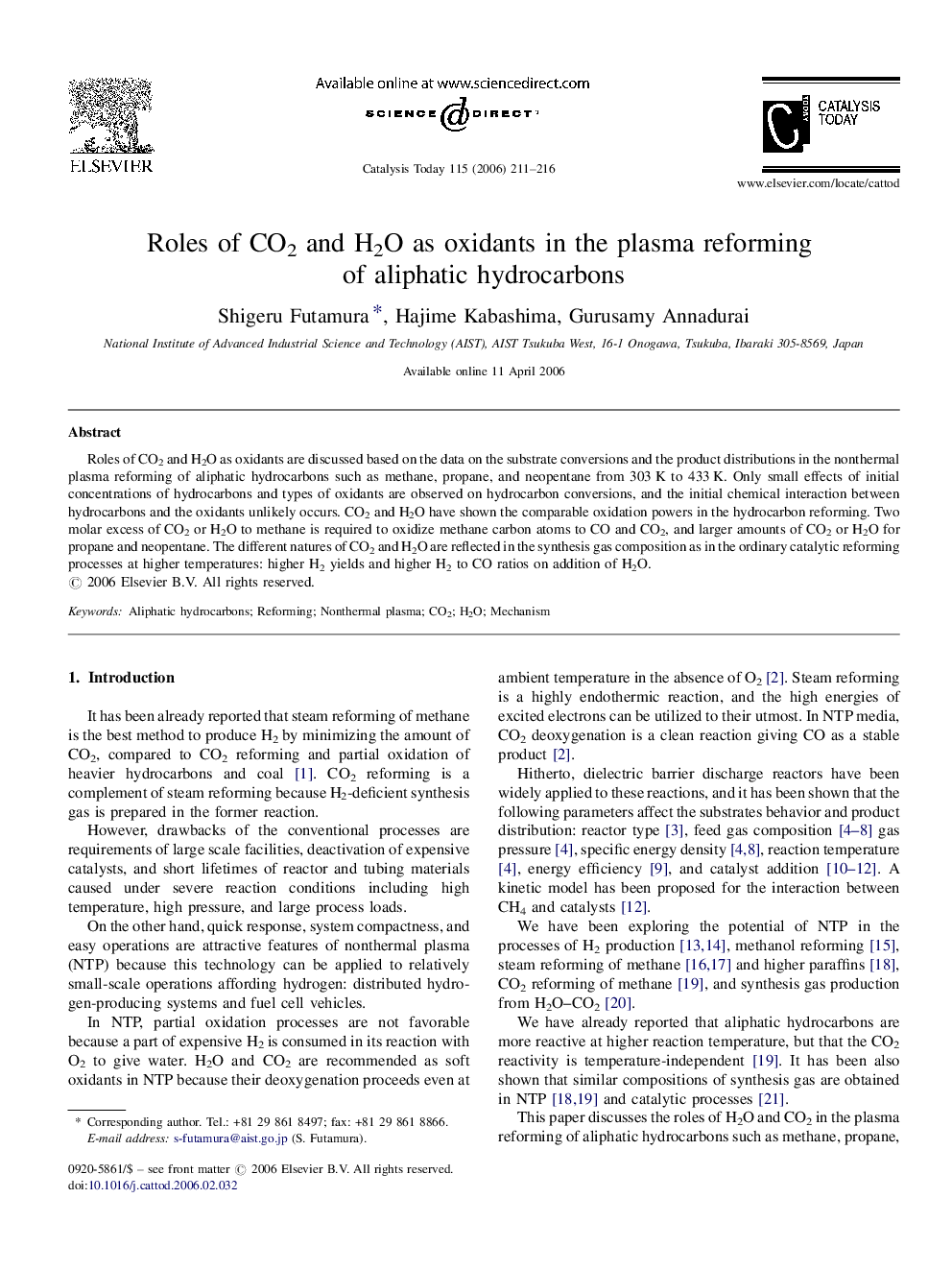| Article ID | Journal | Published Year | Pages | File Type |
|---|---|---|---|---|
| 58857 | Catalysis Today | 2006 | 6 Pages |
Roles of CO2 and H2O as oxidants are discussed based on the data on the substrate conversions and the product distributions in the nonthermal plasma reforming of aliphatic hydrocarbons such as methane, propane, and neopentane from 303 K to 433 K. Only small effects of initial concentrations of hydrocarbons and types of oxidants are observed on hydrocarbon conversions, and the initial chemical interaction between hydrocarbons and the oxidants unlikely occurs. CO2 and H2O have shown the comparable oxidation powers in the hydrocarbon reforming. Two molar excess of CO2 or H2O to methane is required to oxidize methane carbon atoms to CO and CO2, and larger amounts of CO2 or H2O for propane and neopentane. The different natures of CO2 and H2O are reflected in the synthesis gas composition as in the ordinary catalytic reforming processes at higher temperatures: higher H2 yields and higher H2 to CO ratios on addition of H2O.
